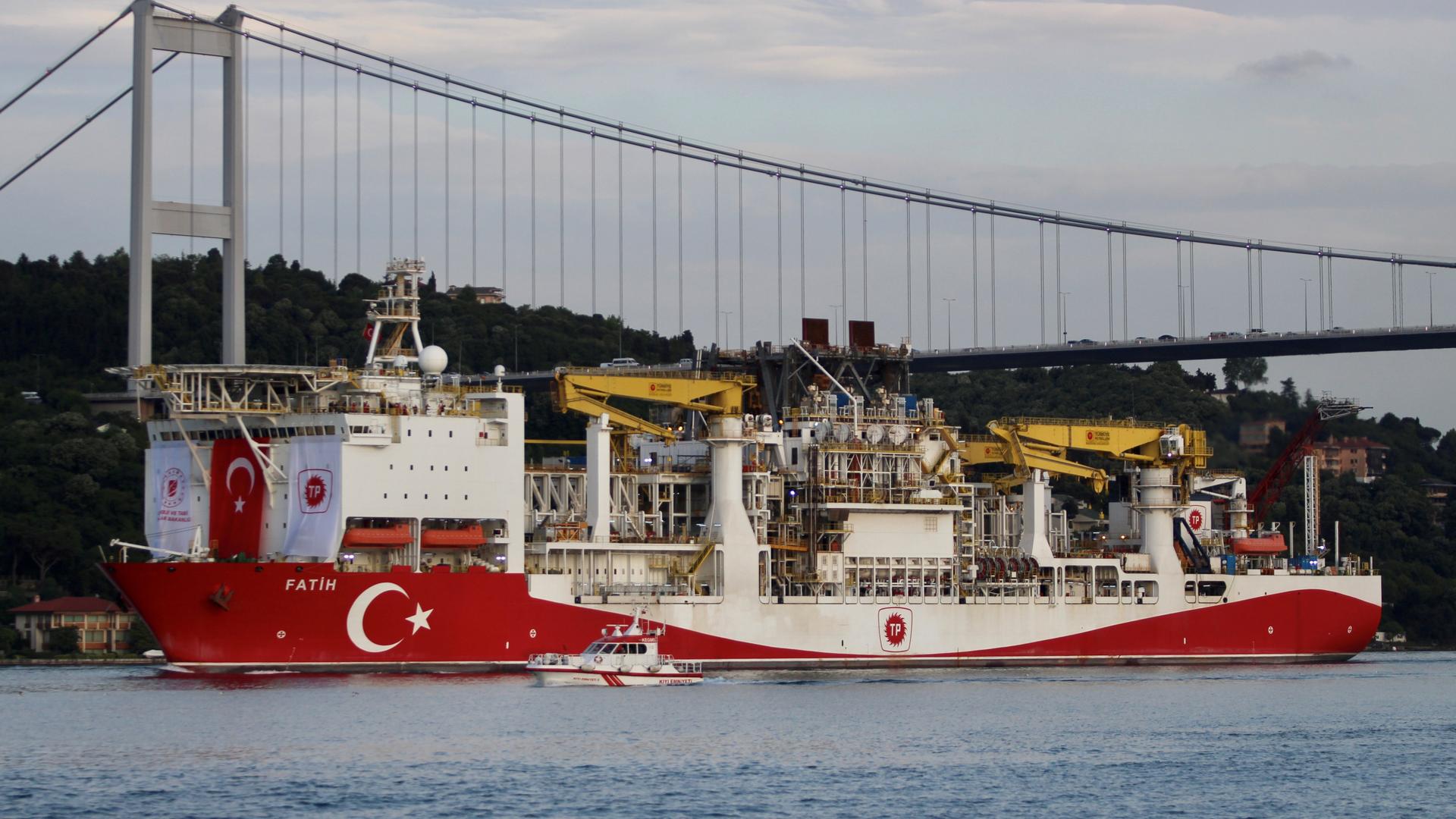Since Turkish President Recep Tayyip Erdogan announced on August 20 the discovery of his country’s biggest gas find ever, a number of analysts have raised doubts about Ankara’s plan to bring the production online by 2023.
The development timeline — around three years from discovery to production — of the Sakarya field in the Black Sea has become a popular point of contention for critics.
But just scanning through the last few years’ developments in the petroleum upstream landscape shows that Turkey’s ambitions are hardly exaggerated.
“Zohr field in Egypt is the largest gas field ever found in the Mediterranean Sea. It is more than double the size of Sakarya. And production from that field started in 28 months (2.4 years),” says Dr Sohbet Karbuz, a senior fellow at the Bilkent Energy Policy Research Center.
Drilling work at the Zohr field, developed by a consortium of companies led by Italy’s ENI, started in July 2015 and by December 2017 gas was flowing through the pipeline to consumers.
Turkey’s Sakarya in the Black Sea will be comparatively easy to develop considering that Egypt Zohr’s gas contains impurities from sulphur. Oil companies have to invest money and time to build facilities to get rid of sulphur.
On the other hand, the Turkish government says the natural gas it has found is of good quality, implying that it won’t have high sulphur content, says Karbuz.
A God-sent setback
Unlike other offshore discoveries where multinational companies generally supervise exploration and drilling work, it was the state-run Turkish Petroleum Company (TPAO) which led the entire initiative.
Now this works in Ankara’s favour as being a government entity, TPAO can considerably reduce the time that goes into negotiating the complex pricing structure and lengthy sale agreements.
“In this case, the seller and most probably the buyer will be the Turkish government companies. They wouldn’t spend months trying to negotiate – they can do it in half a day,” says Karbuz, who recently co-authored a detailed report on the Turkish gas find.
Industry people say that private offshore petroleum companies often get bogged down with paperwork, bureaucratic hurdles and sale-purchase agreements.
Even though TPAO had worked in collaboration with firms such as Chevron, and Petrobras in the past, it began looking for oil and gas reserves in the eastern Mediterranean and the Black Sea on its own because these companies weren’t interested anymore.
For instance, in 2004, British Petroleum found some exploitable gas at a well called Ayazli-1 in the Black Sea but abandoned further research and handed over the concession to TPAO.
Ankara decided to buy a seismic vessel and three drilling ships — Fatih, Yavuz and Kanuni — and began looking for petroleum reserves in the eastern Mediterranean and the Black Sea on its own a couple of years back.
It drilled nine exploratory wells and all came up dry except for Tuna-1 in the Sakarya Field, which holds an estimated 320 billion cubic meter (bcm) of natural gas.
The discovery will help Ankara reduce its import bill as the country spends billions of dollars to import gas from Azerbaijan, Russia and other exporting nations.
Some people have also tried to create a controversy around the speed at which Turkey announced its discovery. Turkey began drilling at the Tuna-1 location on July 20 and announced a find in 30 days.
But that’s not unprecedented either. The Greek Administration of Southern Cyprus had announced the discovery of the deepwater Calypso field on February 8, 2018, just 38 days after drilling started there.
Find comes at the right time
If the Turkish government is able to comfortably arrange the money to finance the development of the Sakarya field, then it doesn’t need to work with big oil majors.
Generally, the work to design and construct offshore oil and gas platforms, pipelines and compression plants is done by oilfield services companies such as Italy’s Saipem, which built the subsea pipeline for the Zohr field.
“Upstream services companies are in bad shape right now, considering the low oil prices and the coronavirus crisis. Turkey shouldn’t have a problem finding one to work with,” says Karbuz.
There are plenty of companies, which have production platforms — the oil rigs — to rent out, he says.
“Maybe if the Turkish government has sufficient capital, this would be a good time to buy one of the services companies as they can be later used in case of another discovery.”










Discussion about this post